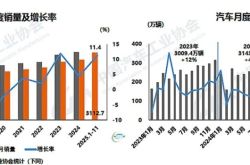E-commerce Enters the "Pinduoduo Model" Correction Phase
![]() 12/20 2024
12/20 2024
![]() 686
686
Pinduoduo is not e-commerce's "Pang Donglai".
Author|Wang Chi Editor|Yang Zhou
After collaborating with Bubugao, Yonghui underwent a significant transformation.
In the physical supermarket industry in 2024, emulating Pang Donglai's approach undoubtedly provided the most effective growth path. On the flip side of retail, the online e-commerce sector in 2024 witnessed a year of stepping away from mentorship and embracing independent learning.
Following the 618 shopping festival, Alibaba resumed allocating search traffic based on GMV targets, weakening the "Five-Star Price Force" strategy and ceasing to pursue high order volumes through low prices. Additionally, it refined the "only refund" policy to bolster merchant rights protection. Most of these strategies aimed at scaling back and optimizing practices were influenced by new policies introduced last year, inspired by Pinduoduo.
Subsequently, a correction in the comprehensive adoption of the "Pinduoduo Model" was also observed on platforms such as JD.com, Kuaishou, and Douyin.
JD.com and Douyin successively announced that the "only refund" policy would only apply to stores with a significant number of defective, misdescribed, or abnormal packages. On November 25, Kuaishou E-commerce also announced the abolition of the "only refund" policy: all merchants who had enabled the "refund without return service" were required to proactively terminate their contracts by December 2; otherwise, the platform would automatically terminate contracts with those who had not done so.
Remarkably, it took the entire e-commerce industry less than six months to transition from embracing the "Pinduoduo Model" to correcting it.
Some retail experts opine that, in contrast to the values of truth, goodness, and beauty embodied in the Pang Donglai model, the Pinduoduo model, centered on low prices as its core competitiveness, may not be the greatest common divisor in the e-commerce industry. After a period of emulation, each platform still needs to revert to its unique competitive advantages.
Not only did Pinduoduo's e-commerce disciples commence gradually rectifying their practices, but Pinduoduo itself also entered a phase of introspection.
During its latest earnings call, Pinduoduo's management acknowledged that the company's disadvantages compared to its e-commerce peers would be significant for some time, potentially further impacting its finances. "We are prepared for a prolonged battle." Amidst intensifying competition and persistent external challenges, the company's revenue growth will decelerate further.
As the e-commerce industry collectively reflected on the Pinduoduo model, Pinduoduo's share price continued to decline in November. Coupled with management's less optimistic future outlook, Pinduoduo's share price plummeted by 10% at one point, erasing over 100 billion yuan in market value. This was not the first time Pinduoduo's market value had suffered such a dramatic drop; following the previous quarter's earnings report, it had similarly plummeted by 30% due to similar management reflections.
Amidst these consecutive declines, some Pinduoduo investors joked that investing in Pinduoduo meant buying into the cyclical nature of "questioning, understanding, and learning from Pinduoduo." This unique cycle of Pinduoduo's belief system has been the dominant theme in domestic e-commerce changes over the past few years.
Currently, the e-commerce industry, which has entered a correction phase for the "Pinduoduo Model," seems to have reached a new starting point in this cycle of "questioning Pinduoduo."
01 Suffering from the "Big Company Disease"
As the third major domestic e-commerce platform, unlike Alibaba and JD.com, few people discuss the "big company disease" when discussing Pinduoduo.
What is the big company disease? An editorial in the Economic Observer Newspaper mentioned that the management of internet giants like ByteDance, Alibaba, JD.com, and Baidu had identified a "big company disease" within their organizations: symptoms included organizational rigidity, poor communication, formalism, and decreased team cohesion, directly impacting company efficiency and performance.
In contrast, Pinduoduo has always been renowned for its human efficiency.
According to data compiled by Time Finance on human efficiency in the first half of 2024, Pinduoduo's human efficiency stood at 10.569 million yuan, 1.6 times that of the same period last year. In comparison, Tencent, Alibaba, Meituan, and JD.com had human efficiencies of 3.0389 million yuan, 2.3466 million yuan, 1.3566 million yuan, and 1.0663 million yuan, respectively. Simply put, each employee at Pinduoduo generated 4.5 times the revenue of an Alibaba employee.
Benchmarking Pinduoduo's human efficiency even became a criterion for some companies' layoffs. From an efficiency perspective, Pinduoduo, despite being a large company, appears to be an outlier, far removed from the big company disease.
However, with declining profits, Pinduoduo is also exposing its own big company disease.
In the latest earnings call, Pinduoduo's management admitted: "In response to certain changes, the gradual aging of the Pinduoduo team and its own inadequate capabilities may also cause us to miss some macro opportunities. Due to historical limitations in third-party platform operations, we have not fully leveraged the benefits of these macro policies, resulting in the platform having to incur significantly higher costs than peers to maintain the same product competitiveness. This will inevitably affect Pinduoduo's profitability now and in the near future."
As indicated by management's statements, the company's early absence from the state subsidy market stems from the historical limitations of Pinduoduo's senior executives. This limitation, coupled with Pinduoduo's philosophy of doing one's duty, may be contributing to the company's own big company disease.
What is doing one's duty? In an exclusive interview with Caijing, Pinduoduo founder Huang Zheng said, "Doing one's duty means doing what one should do in their position." Under this philosophy, Pinduoduo's effective operation primarily stems from super-brain decision-making, swift implementation by management, and employees "not meddling."
In terms of organizational structure, Pinduoduo is a very flat company. Since its inception, Pinduoduo has not established a job level system, and there are only four levels of management: first-level supervisors, second-level supervisors, team leaders, and team members. The decision-making chain for a new project is extremely short, with a team leader and second-level supervisor directly connecting with a first-level supervisor after discussion.

American management expert Peter Drucker used the example of a symphony orchestra to vividly illustrate the "flat" characteristics of an organization. He pointed out that hundreds of musicians can play together with their chief conductor because they all use the same score. This score serves as a process that instructs all musicians what to do and when to do it.
Flat management in a company also requires each position to have a "score" of the management process. Regardless of who holds the flowchart, they should clearly know what they should do at the moment.
This means that a flat organization requires an error-free score, and the person who writes this score needs to be a robust command center capable of continuously adapting to market environment iterations. Within Pinduoduo, the core power triangle that authored this score in the past was Huang Zheng, Gu Pinting, and Lu Junjuan.
This highly people-oriented organizational structure is highly correlated with the core competencies of leaders in business development. When organizational decision-making relies on individual cognition and wisdom, it will invariably miss some new opportunities of the times. After all, no one can win all the time. Before Pinduoduo, Xiaomi, which went public with a three-tier organizational structure, began to de-flatten and implement a hierarchical system in response to declining performance after going public in 2018, using organizational capabilities to compensate for the limitations of core management decisions.
Judging by this trend, with two consecutive quarters of declining profits and an absence from the early state subsidy market, Pinduoduo may also be at a juncture to enhance its organizational capabilities.
02 Failure of Methods Under the Inertia of Success
In addition to enhancing organizational capabilities, the inertia of past successes within the comfort zone is also causing Pinduoduo's methodologies to falter.
Since its inception, Pinduoduo has been able to break out of the cycle of "questioning, understanding, learning" primarily due to the popularity it garnered in the e-commerce market through the "10 billion subsidy" and "only refund" strategies. However, as these methodologies spread from Pinduoduo to the entire e-commerce industry, the amplified issues are causing Pinduoduo to lose some of its luster.
For example, when discussing the pressure on Pinduoduo from state subsidies, an e-commerce analyst pointed out: "The early lack of emphasis on state subsidies was precisely the original intention behind Pinduoduo's 10 billion subsidy program. The core purpose of introducing the 10 billion subsidy was not to offer the lowest prices across the entire network but to use subsidies to drive brand consumption on the platform, achieving full coverage of all consumer groups, from outside to inside the fifth ring road."
According to a report by LatePost, sources close to Pinduoduo believe that internally, the company positions the 10 billion subsidy program as a "mini Tmall."
This branding orientation and empiricism largely failed to attract much attention from Pinduoduo, which initially focused on promoting consumption. However, the actual market change is that, under the imitation of platforms like Taobao and JD.com, the 10 billion subsidy has long become synonymous with the lowest prices across the entire network.
After the launch of the state subsidy zone, it directly competed with the mindset of the lowest prices across the entire network established by the 10 billion subsidy program. For the same product on JD.com and Taobao, the trend of user perception that the combination of the 10 billion subsidy and state subsidy is lower than that on Pinduoduo is gradually emerging. Conversely, Pinduoduo, trapped by the branding orientation of the 10 billion subsidy program, did not pay attention to changes in user perceptions of low prices in the early stages.
In addition to losing the user perception of the lowest prices across the entire network due to the 10 billion subsidy program, another issue is the changing environment faced by the "only refund" policy.
As Pinduoduo's exclusive after-sales mechanism, the introduction of "only refund" was primarily aimed at addressing concerns about the prevalence of "fake goods" in consumers' minds during Pinduoduo's early days. To reverse negative perceptions and bolster consumer trust in the platform, Pinduoduo introduced the "only refund" service from the perspective of enhancing the shopping experience.
However, as e-commerce platforms like Taobao and JD.com followed suit in recent years, the crude after-sales mechanism of "only refund," originally utilized by Pinduoduo to tackle fake goods, has become a standard feature in e-commerce platform competition. When extended from Pinduoduo to the entire industry, the one-size-fits-all approach of "only refund" is no longer viable and has ushered in new regulatory mechanisms.
Recently, market news reported that the State Administration for Market Regulation and the Ministry of Commerce summoned Pinduoduo executives to request adjustments to the "only refund" policy. Simultaneously, insiders stated that regulators believed the "only refund" policy placed an unfair burden on small businesses and held closed-door meetings with e-commerce platforms such as Alibaba and JD.com to focus on discussing the impact of the "only refund" policy.
Regardless of the veracity of these reports, as "only refund" evolves from a singular Pinduoduo platform to an industry issue, it is inevitable that it will face more standardized governance. As early as August, the E-commerce Complaint Center and the E-commerce Research Center of the China E-commerce Research Center initiated an investigation into "only refund." The final investigation report was sent to over ten ministries and commissions, including the State Administration for Market Regulation, the Cyberspace Administration of China, and the Ministry of Industry and Information Technology.
According to this report, merchant complaints primarily focused on six issues: "only refund," excessive consumer protection, arbitrary fines, withholding of deposits, mandatory freight insurance, and arbitrary store closures. Among them, "only refund" accounted for up to 65.53%. Additionally, 89.05% of the 2,000 surveyed merchants held a strongly opposed attitude towards the "only refund" policy.
When "only refund" was first introduced, Pinduoduo shifted the governance pressure of the platform to merchants through a punishment mechanism, reducing consumers' trial and error costs and gaining their trust. However, as more white-label merchants from industrial belts flooded the platform, low prices and low quality were no longer simply equivalent. Pinduoduo failed to introduce a more refined after-sales policy to adapt to changes in the platform's operating environment.
03 Pinduoduo and Douyin Enter the Same Timeline
The core of platform operation is adaptability, yet Pinduoduo's past operations resembled a one-trick pony.
Whether it was the 10 billion subsidy program or the "only refund" policy, the former helped Pinduoduo establish the user perception of the lowest prices across the entire network, while the latter aided Pinduoduo in capturing a zero-cost trial and error after-sales mechanism.
In contrast to Pinduoduo, traditional e-commerce platforms like Taobao and JD.com seemed clumsy and unable to find a way to compete. However, if we look back in history, JD.com once defeated Suning and GOME of its time with its logistics advantages in self-operated genuine products and transparent pricing mechanisms for 3C and digital products.
As a pioneer in Chinese e-commerce, Taobao was the one that established logistics and electronic payments. Leading companies at each stage have innovative initiatives suited to their times.
However, as a company matures and evolves into a platform, the focus of sustainable platform development shifts from rapid growth to balancing the diverse roles within the ecosystem and finding stability amidst constantly shifting operations.
Currently, both Pinduoduo's reliance on low prices and Douyin's algorithmic dominance have garnered similar scrutiny. Both companies have been at the center of social debates this year. Evidently, as platform enterprises, both Pinduoduo and Douyin must still address their shortcomings in fulfilling their social responsibilities.
Remarkably, amid renewed skepticism, Pinduoduo employees have recently begun to hear rumors about the introduction of a two-day weekend welfare system, though internal staff have refuted these claims. Nevertheless, the company's employees, known for their exceptional efficiency, have taken to online communities to pen fan fiction, humorously satirizing the internal reactions following Pinduoduo's stock price decline: "It's madness! Everyone's gone crazy. Our executives are just this level."





